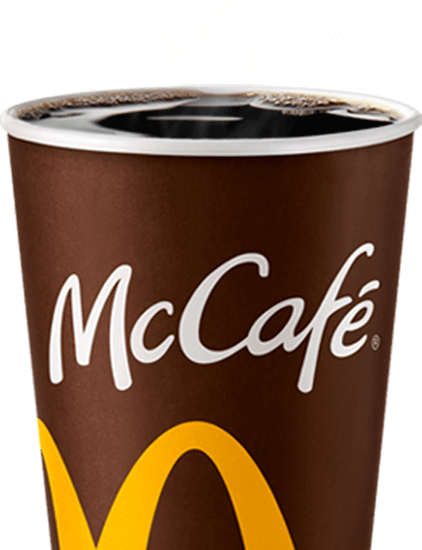
Hacienda La Minita, QW53+5P6, San José Province, Rosario, Costa Rica
How is it produced?
McDonald’s coffee is produced on smallholder farms in Guatemala, Colombia, Ethiopia, and Costa Rica, frequently in impoverished areas with few worker rights. Global supply chains are used to harvest, process, and export the beans; the production process has an adverse effect on the environment due to increased chemical use, soil deterioration, and deforestation.
Describe the supply chain to the store shelf in Canada:
McDonald’s coffee beans are processed, roasted, and shipped to Canada from smallholder farms in nations including Ethiopia, Guatemala, Colombia, and Costa Rica. They are then delivered to McCafé locations, where they are brewed and offered for sale, after being disseminated to regional supply hubs.
What is the power balance between the producer and seller?
There is a significant imbalance of power in favor of the seller. While smallholder coffee growers face unstable international markets, have little negotiating leverage, and frequently are unable to negotiate acceptable labor or price conditions, McDonald’s, as a multinational corporation, controls contracts, pricing, and quality standards.
Can you recommend changes to the system to improve the balance?
Instead of depending on optional CSR initiatives, the system might be enhanced by enacting legally binding labor and environmental laws. In order to shift power toward producers, encourage sustainability, and guarantee a more just and democratic international coffee trade, greater assistance for growers should be provided through cooperatives, local ownership, fair pricing systems, and third-party accountability for certifications.
References/Resources:
Barista Magazine. (2025, August 25). Unpacking the colonial history of Latin American coffee production: Part one. Retrieved October 24, 2025, from https://www.baristamagazine.com/unpacking-the-colonial-history-of-latin-american-coffee-production-part-one/ Barista Magazine+1
Blanco-Sepúlveda, R., Lima, F., & Aguilar-Carrillo, A. (2024). An assessment of the shade and ground cover influence on the mitigation of water-driven soil erosion in a coffee agroforestry system. Agroforestry Systems, 98(6), 1771–1782. https://doi.org/10.1007/s10457-024-00989-6
The Borgen Project. (2019, September 7). Coffee farms fight world poverty. Retrieved October 24, 2025, from https://borgenproject.org/coffee-farms-fight-world-poverty/
Fairtrade International. (2025). Coffee [Commodity risk map]. Retrieved October 24, 2025, from https://riskmap.fairtrade.net/commodities/coffee
Haight, C. (2011, Summer). The problem with Fair Trade coffee. Stanford Social Innovation Review. Retrieved October 24, 2025, from https://www.ssir.org/articles/entry/the_problem_with_fair_trade_coffee/
International Coffee Organization. (2022). Coffee development report 2021: The future of coffee: Investing in youth for a resilient and sustainable coffee sector (ED-2427e). https://www.ico.org/documents/cy2022-23/ed-2427e-cdr-2021.pdf
McDonald’s. (2025). McCafé – Our menu/promo. Retrieved October 24, 2025, from https://www.mcdonalds.com.cy/our-menu/promo/mccafe
Moser, R. (2019, January 13). Neoliberalism: Free market fundamentalism or corporate power?. Be Freedom. https://befreedom.co/2019/01/10/neoliberalism-free-market-fundamentalism-or-corporate-power/
Rainforest Alliance. (2013, April 11). Certified sustainable coffee grows rapidly as more companies commit to sourcing [Press release]. Retrieved October 24, 2025, from https://www.rainforest-alliance.org/press-releases/sustainable-coffee-grows/
Rodrik, D. (2011). The globalization paradox: Democracy and the future of the world economy. Norton.
Smithsonian Migratory Bird Center. (n.d.). Ecological benefits of shade-grown coffee. Retrieved October 24, 2025, from https://nationalzoo.si.edu/migratory-birds/ecological-benefits-shade-grown-coffee
Thompson Rivers University (2025). Unit 2: Ideologies of globalization and financial globalization. Thompson Rivers University Moodle.
Thompson Rivers University. (2025). Unit 3: Accountability and democracy under globalization. Thompson Rivers University Moodle.
Watkins, K., & Fowler, P. (2002). Rigged rules and double standards: Trade, globalisation and the fight against poverty. Oxfam International. Retrieved October 24, 2025, from https://www.iatp.org/sites/default/files/Rigged_Rules_And_Double_StandardsTrade_Globali.pdf
Watson, K., & Achinelli, M. L. (2008). Context and contingency: The coffee crisis for conventional small-scale coffee farmers in Brazil. The Geographical Journal, 174(3), 223-234. https://www.jstor.org/stable/40205235
Wei, W. (2024). Never cross the red line? Analysing employment relations practices and the behaviour of front-line managers in Chinese McDonald’s stores. Industrial Relations Journal,

